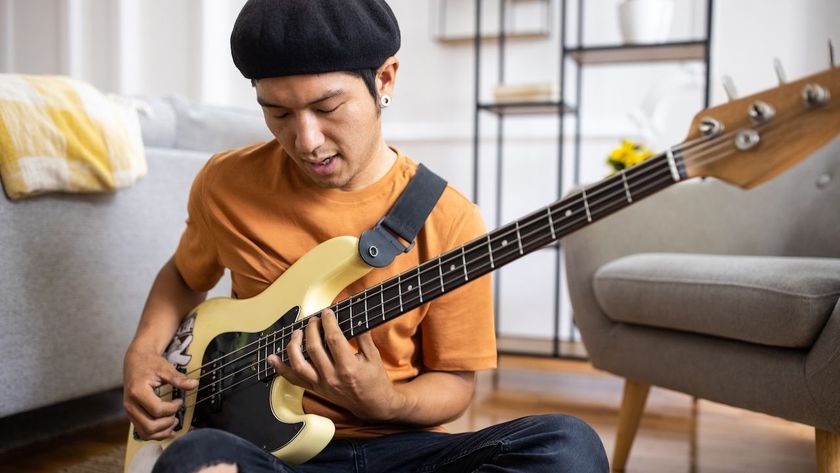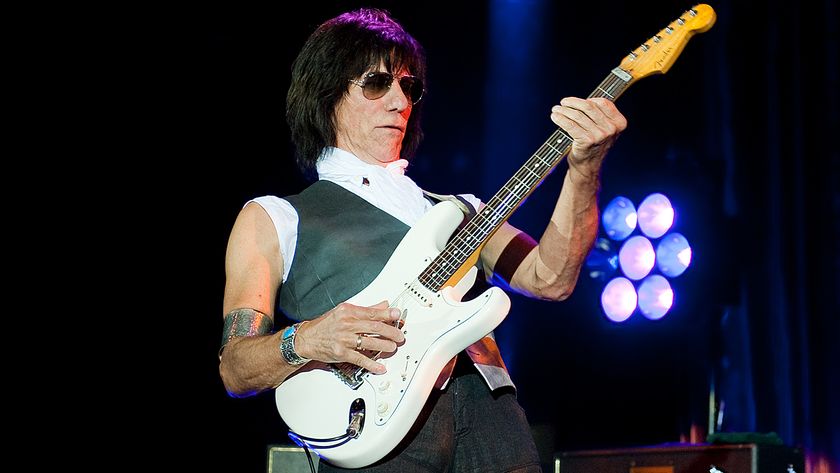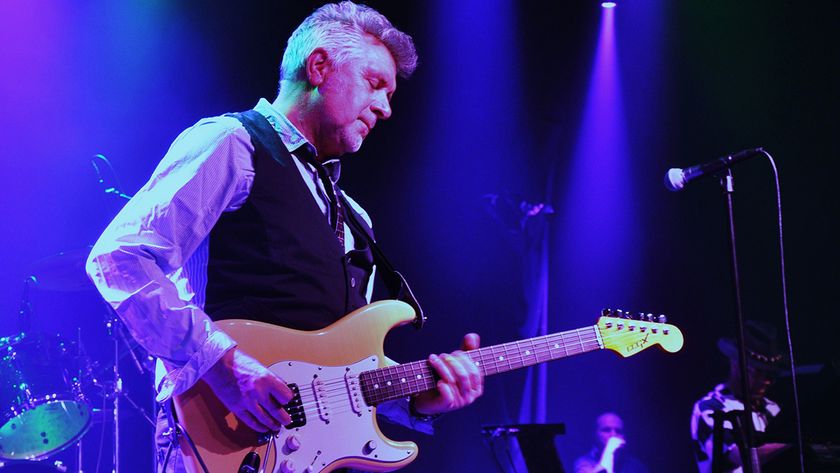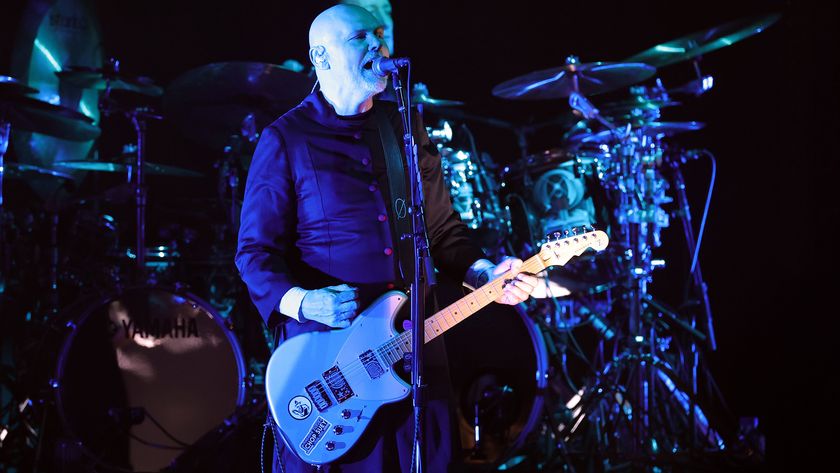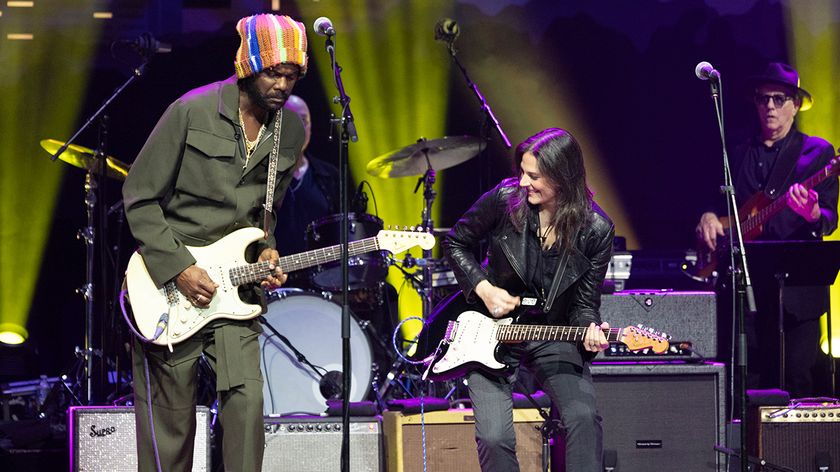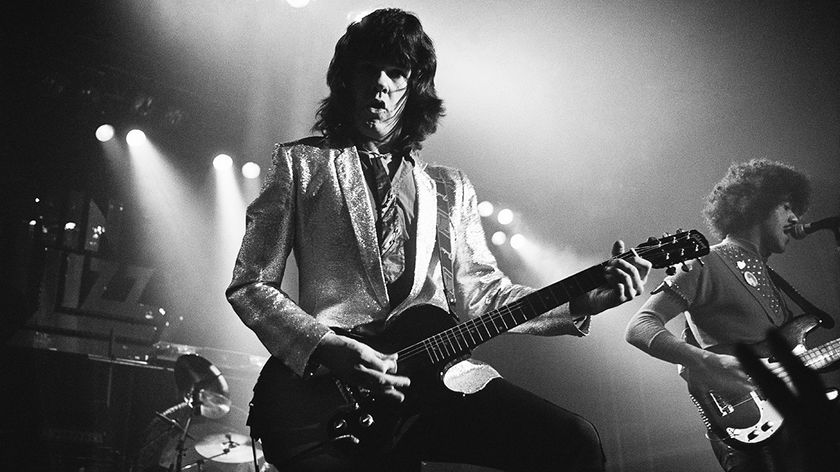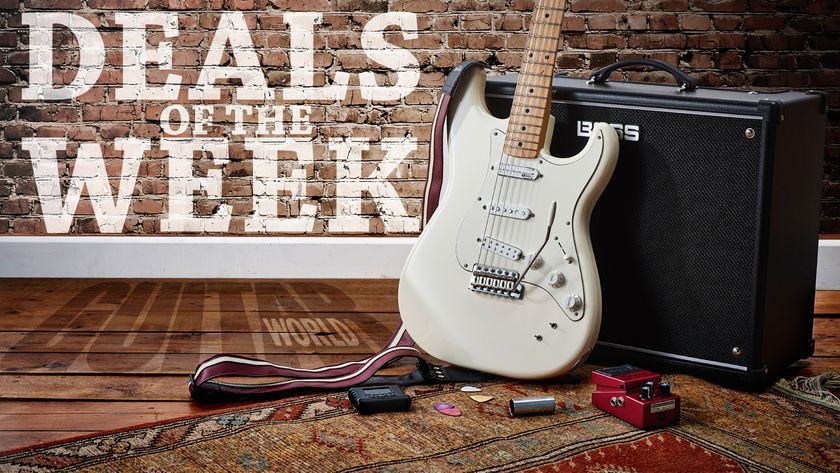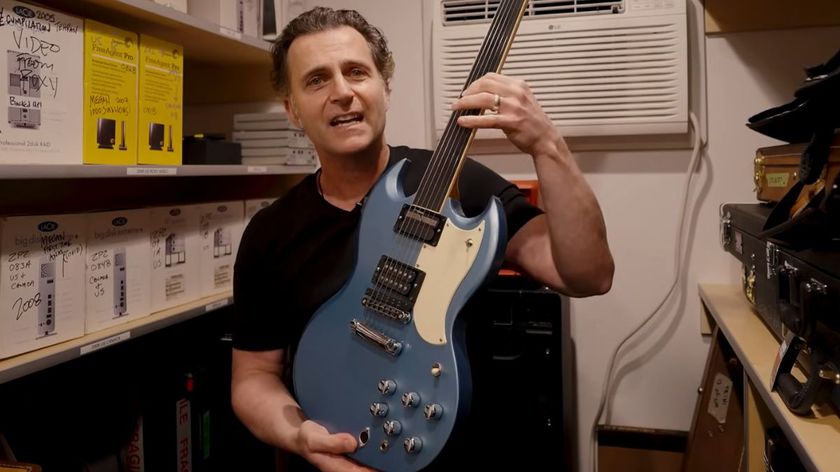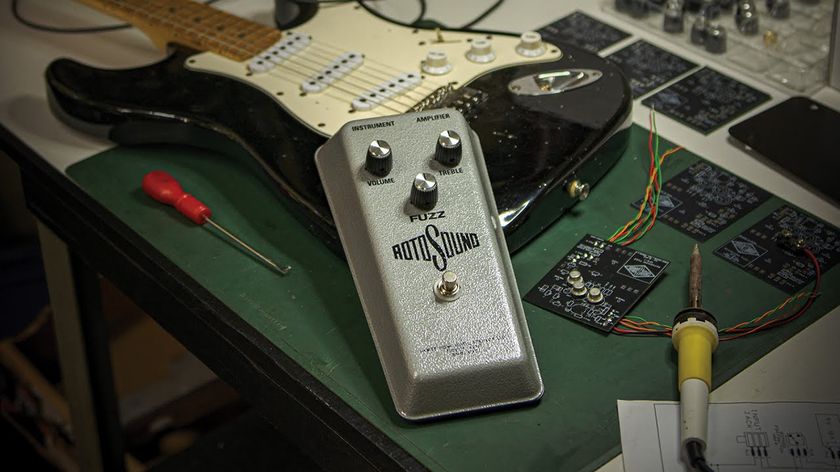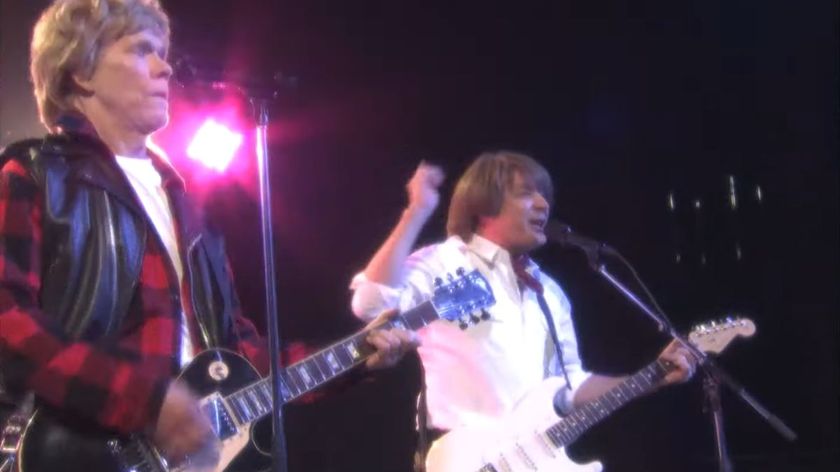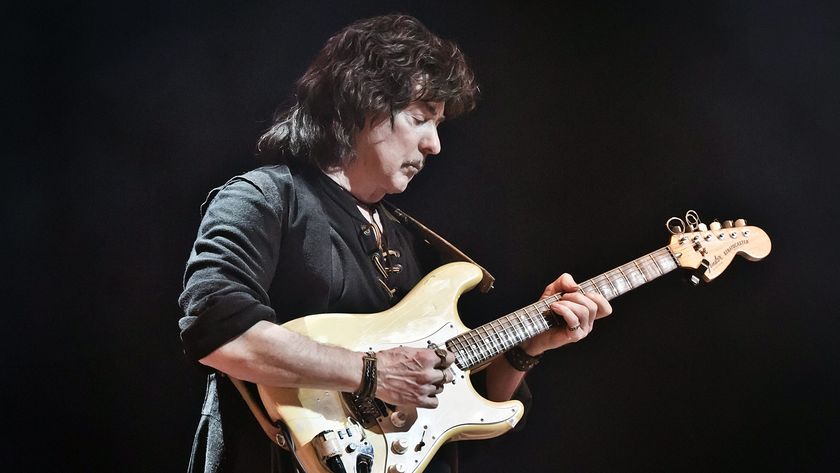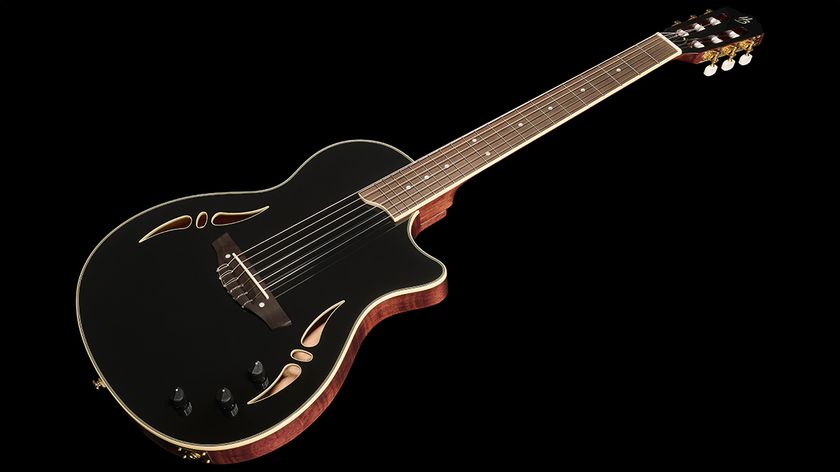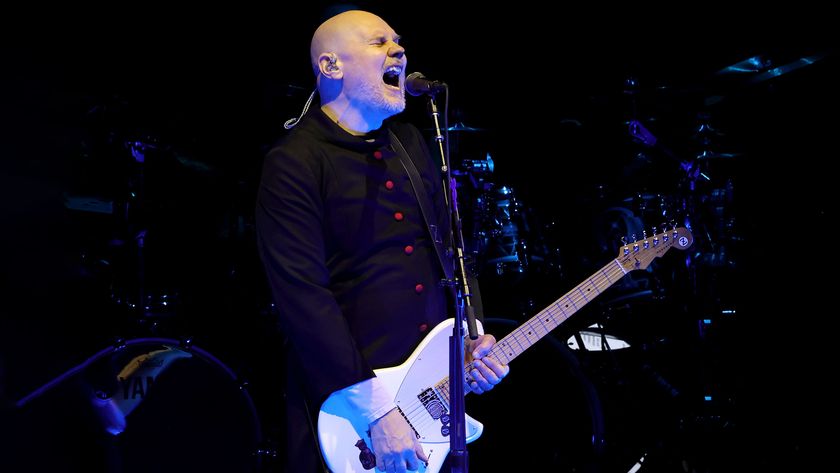The Complete Guitarist: The Greatest Lessons that Changed My Life
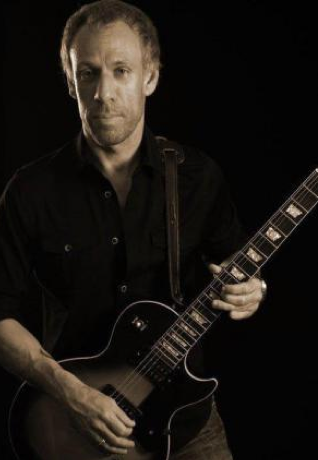
This past week, I was doing some spring cleaning, and I came upon some notes given to me from a few lessons I took from a famous jazz teacher in the late 1980s in NYC.
I won't name names. I wanted to learn modes and improvisation, so I hit the Village Voice looking for a teacher. I took only three lessons from this gentleman, mostly due to the fact that during every lesson he was under the influence of certain mind-altering substances, which I found really unprofessional considering the amount he was charging me.
The amount of knowledge he gave me during those three lessons, however, really pushed my playing to a higher level and, of course, taught me a big life lesson on how to be professional and how NOT to be a teacher.
I began thinking about all the valuable lessons my teachers over the years have given me and how important they were to shaping my musicianship, career and, above all, me as a human being. These lessons are guitar- and music-related, but at the end of the day, they are all life-related. In this blog post, I would like to share just a few of those lessons with you.
KNOW YOUR RHYTHM: After my disappointment with the jazz guy, I sought out another guitar teacher. I found one who took my playing to another level in a number of unique ways. We did two lessons a week: One lesson was learning the modes and how to use them; another lesson was dedicated to getting my rhythm together. The only thing was, during this lesson I would not need a guitar. This lesson would be at his kitchen table. He would write rhythms out on a piece of paper of varying complexity, hit the metronome at a slow tempo and ask me to tap the rhythms out on the table with a pencil. During that week, part of my homework would be to apply those rhythms on the high open "E" string in time with a metronome, of course. This little exercise really opened my eyes as to how bad my rhythm really was and how important rhythm really is. These lessons at his kitchen table truly helped me to get my rhythm playing together and really helped me later in my career when I went on to college to earn degrees in music. It helped enormously with analysis, sight reading and eventually classical guitar. I still use this exercise for my own playing and for my students! Just paying it forward.
KNOW THE FRETBOARD: Yes, I sound like a broken record, but that's OK. I have no problem with sounding like one until my students "get it." Looking back, I think I got my passion for knowing the fretboard from this teacher. He was emphatic and intense about it also, maybe even more than I am. His approach, like mine I hope, was very unique. He would get a stop watch and set it to 20 seconds and tell me to play all the notes of a particular pitch all over the neck and then start the clock. Once I got this down, which took me longer than I will admit, he took the time down to 15 seconds and eventually 10 seconds.
We went through every single note in the chromatic scale, which, as you know, is every note in music. This was pretty intense but invaluable. I learned where every note was eventually. Try it at home. Grab a stopwatch, set it for 20 seconds and play every Bb on the neck. Go!!! Now try it with every C#. Go!!! Now every Eb. Now lower the stop watch to 15 seconds. Get the picture?
Get The Pick Newsletter
All the latest guitar news, interviews, lessons, reviews, deals and more, direct to your inbox!
TALENT IS NOT ENOUGH: I didn't learn this lesson through a formal teacher. I learned it though observation. When I was growing up, there were many players in my circle who just "had it." They didn't practice, but they were amazing players. They were really talented players. They don't make a living doing it. They don't play anymore. And they all regret it. Since I never had "it," I always had to work harder than they did. I eventually outworked them.
Funny thing is, the harder I worked, the more skilled I became at guitar, the more opportunities came my way and that eventually led to me pursuing and achieving my dream: to play guitar for a living. There is the difference between talent and skill. We all have talent. We all have the talent to become the next Steve Vai, Derek Jeter or Pablo Picasso, but to achieve the highest level we can be, we have to become skilled like they are/were.
Skill takes hard work, perseverance, dedication and practice, practice and practice. There is no magic pill we can take to become skilled at guitar or anything, for that matter. Talent is not enough and will never be enough. There are no such things as prodigies; just average talented people working their behinds off to become the best they can be.
Notice how all the greats at any given field or profession make it look easy. It's hard work to make it look that easy, not talent. If it was just talent, then we would all be great. A wise man once said, "Talent is one step away from lazy." I can certainly testify to the fact that hard work and dedication will get you everywhere. This philosophy is probably the single most important lesson I have ever learned. This belief has and is still working for me and can and work for you.
So, with that in mind: GET TO IT! Pick up that guitar and play, just like yesterday, people ...
Thank you for reading and any comments and or observations are always welcome!
Guitarist Richard Rossicone is a veteran of the New York City and Long Island original and cover band scene. He's been playing since he was 8, when he attended his first concert (Kiss) and saw Pete Townshend smash a guitar. He has studied with various instructors over the years, which led him to a career in music therapy. He began his educational journey at Queensboro Community College, where the faculty introducing him to classical music. He received his associate's degree in fine arts in 1997 and went on to receive his bachelor's in music therapy in 2001 and his master's in music therapy from New York University in 2004. He's been Board Certified as a music therapist since 2002. Richard continued his studies at C.W. Post University, pursuing a second master's degree in classical guitar performance and music history, studying under Harris Becker. He's been teaching guitar, piano and theory since 2002 and in 2006 started his own company, Rossicone Music Studios. Visit him at Axgrinder.com and his Complete Guitarist Facebook page.
